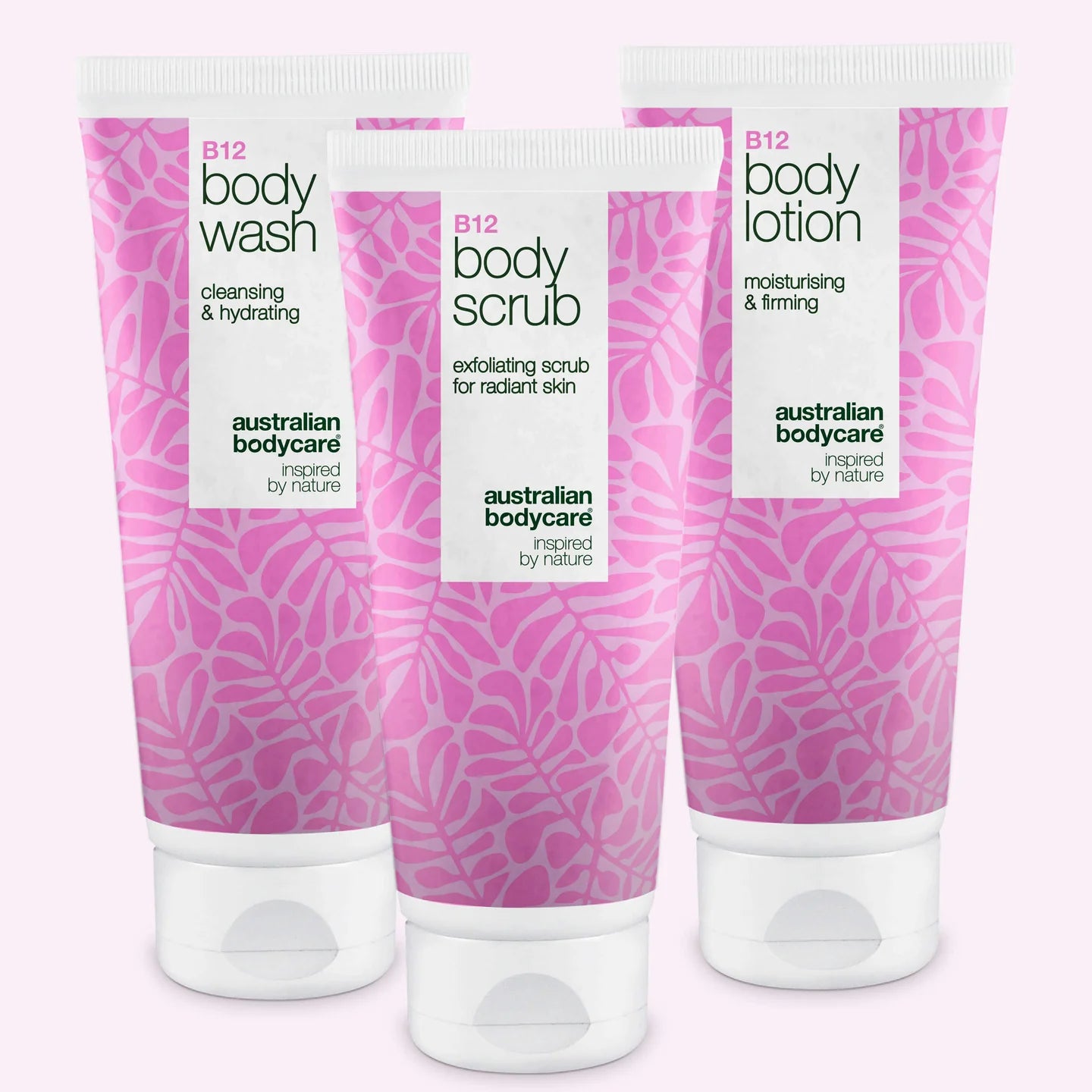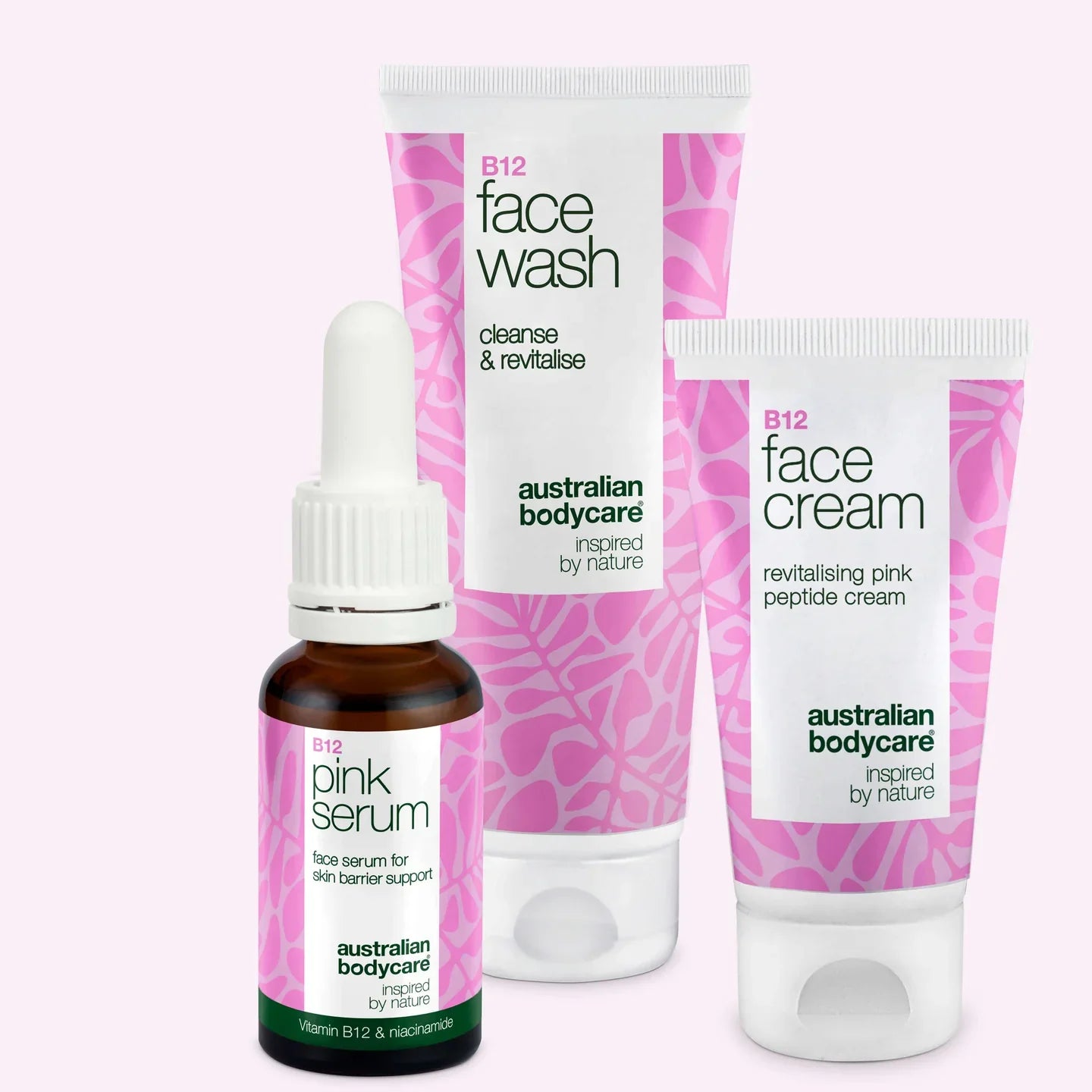Causes, Treatment and Prevention of Dandruff
A flaky or itchy scalp can be a sign of dandruff, an unpleasant skin condition which affects at least one in two people at some point in their life.
The condition is characterised by white or grey flakes of skin shedding from the scalp and that can often be seen on the affected individuals hair, hairbrush and clothes.
Go to: Dandruff Treatment
Dandruff can be caused by a combination of the following three factors; a microbe which naturally occurs on everyone’s scalp, natural oils or a sensitive scalp.
Table of contents
Causes of Dandruff
» Go to: mentioned products
The naturally occurring microbe, Malassezia Globosa is found on everyone’s scalp. It feeds on the natural oils (sebum) in the scalp; sebum is present to keep your hair and the skin on your scalp well-moisturised.
As the sebum breaks down, it produces a by-product known as oleic acid. It is estimated that fifty percent of people are sensitive to oleic acid, so their scalp responds by becoming irritated and inflamed.
This inflammation causes the scalp to become red and itchy, leading the body to signal to the brain to shed skin cells at a faster rate.
This shedding is an attempt to get rid of the irritant, and physically appears as visible white flakes that often fall onto your shoulders.
What causes dandruff?
Although the root cause of dandruff will always be the same, other factors can exacerbate the condition making it seem worse. Factors which can worsen dandruff include;
1. Irritated and oily skin
This can be caused by conditions such as seborrheic dermatitis. Seborrheic dermatisis is marked by red and greasy skin that is covered in flaky white or yellow scales.
The condition can affect your scalp and other areas of the body which are rich in oil glands, such as the creases around your nostrils, the backs of your ears, the groin and armpits.
2. Dry skin
If you suffer from dry skin or have a medical condition such as eczema, it is likely that your scalp will also become dry, flaky and probably also very itchy. Flakes due to dry skin usually appear smaller and less oily.
Dry skin can be exacerbated in colder climates and during winter due to dry weather conditions.
3. Not shampooing enough
If you don’t wash your hair on a regular basis then oils and skin cells can build up on the scalp leading to dandruff. Male hormones also known as androgens can also cause greasy or oily skin which can lead to dandruff.
However, shampooing too often can dry out the scalp and cause dandruff, it is recommended that you shampoo every other day to maintain a healthy balance.
4. Brushing your hair irregularly
Can also increase your chances of having dandruff, as a build-up of dead skin occurs on the scalp.
5. Heat and dry air
Conversely heat can dry the scalp and make dandruff appear worse.
6. Air pollution
Can also contribute to dandruff as chemicals which are circulating in the air can affect the skin and cause irritation or allergic reactions on the skin and scalp which can cause dandruff.
7. Alkaline shampoos
Individuals who suffer from dandruff should opt for a neutral or slightly acidic pH shampoo. If you use a product which is unsuitable for you are sensitive to, your scalp may react causing an itchy and flaky scalp.
Hair products which contain certain oils can also worsen dandruff as yeast can feed off these lipids and grow in their presence. Styling products can also build-up on the scalp and cause greasiness.
8. An unbalanced diet
However eating foods which are rich in zinc, vitamin B and fats can help you prevent dandruff from developing.
9. Stress
Can worsen any skin condition and impair your immune system. Although the microbe malassezia is already present on everyone’s scalp, it can thrive once the immune system becomes compromised or impaired leading to the development of dandruff.
Stress can cause an itch-scratch cycle where the more you scratch the itchier your scalp becomes.
Therefore it is important to incorporate some relaxation methods into your daily routine to reduce stress levels and improve scalp health.
Read More About: How To Get Rid Of Dandruff
Symptoms of Dandruff
Dandruff is one of the most common health problems of the scalp which is faced by almost half of the world. Anyone regardless of their age, gender and ethnic background can develop dandruff;
in fact it can even begin from as young as ten.
The symptoms of dandruff are highly prominent and easily noticeable that most people will be able to self-diagnose.
White flakes
The first and most common symptom of dandruff is the presence of white flakes, usually visible in the hair or on shoulders and clothing. Flakes appear as the skin on the scalp increases its rate of cell renewal, causing cells to excessively appear and shed from the scalp.
These flakes are simply harmless dead skin cells, when the cause is an oily or greasy scalp they will appear more yellow in colour. Dandruff can even appear in facial hair including the eyebrows and eyelashes, in these cases it may be more embarrassing for the individual and require immediate attention.
Itchy scalp
People with dandruff may feel they have an itchier scalp, especially around the hairline and sideburns; this can be because of dry skin and inflammation.
Usually itching is the first symptom that appears with dandruff and can be thought of as a warning sign before flakes begin to appear.
Itchiness is a result of inflammation and sensitivity to the microbe Malassezia Globosa; in more severe cases, the inflammation can even cause the scalp and the hairline to turn red just as any other part of the skin would when it is inflamed.
Dry scalp
Often the scalp will also feel dry and over-stretched, this is because dandruff can damage the natural moisture barrier of the skin and allow essential moisture to leak out.
This makes the scalp feel dry and tight. Read more about dry scalp treatment.
Read More About: Benefits Of Using Tea Tree Oil For Your Hair
Dandruff Treatment
As dandruff is often a chronic condition it can be managed with proper care. You can try using a non-medicated shampoo and massaging the scalp firmly then making sure to rinse off all product residues from the scalp.
Shampooing on a regular basis, three to four times a week can help to remove flakes, oiliness and prevent the build-up of any dead skin.
If this fails, antidandruff shampoos can be helpful. Some anti-dandruff shampoos instruct daily use and are mild enough to be used on a daily whereas others may be recommended for use once or twice a week only.
These types of shampoos contain active ingredients which are indicated on the back of the packaging. Anti-dandruff shampoos should be used for at least one month so that results are visible, unless there is an adverse reaction, as the scalp requires time to replenish the normal cells.
If your dandruff is still present after one month of using an anti-dandruff shampoo, and you have tried at least two different shampoos then it is recommended that you consult with your doctor or a skin specialist.
This is important especially if you are suffering from redness, itchiness or dry scales of dead skin on the scalp or elsewhere on the body.
A doctor can examine the scalp and prescribe ointments, creams, lotions or shampoos to be used on the scalp. If there is an underlying skin condition which needs addressing some medication may be prescribed to resolve the condition.
There are numerous natural remedies available to help treat dandruff. One of the most popular remedies involves applying tea tree oil to the scalp. By applying a small amount of this essential oil to scaly patches on the scalp, or by adding a few drops to your regular shampoo, you can treat your dandruff this is due to its natural antibacterial properties.
Tea tree oil can even help unclog hair follicles and nourish the roots of the hair by moisturising the scalp and the hair. This helps resolve dryness and itchiness and control any excessive oil production.
Applying olive oil to the scalp has also been shown to improve dandruff. Olive oil contains essential nutrients and antioxidants which makes it an excellent choice for hair oil. It can moisturise a dry scalp and quickly soothe any flaking.
In fact olive oil can even dissolve dirt and excess oils on the scalp, as well as loosening dead skin so that it doesn’t settle into the hair follicles.
Gently and effectively reduce dandruff with Shampoo containing Australian Tea Tree Oil. Your hair will be softer, more luxurious and your scalp clean and healthy. With regular use you can control dandruff.
Video: 3 Steps For A Healthy Scalp & Hair
Frequently Asked Questions About Dandruff
What is dandruff?
Dandruff is a condition in which dead skin cells are shed from the scalp. Almost half of the world’s population experiences an unusually large amount of skin flaking that can be chronic or as a result of some triggers, the condition is often accompanied with some redness or irritation of the scalp.
Why do I have dandruff?
Dandruff is a very common disorder and can affect practically anyone regardless of their age, gender or ethnic background. Dandruff can be triggered by certain factors such as not shampooing enough, over-styling hair, stress, not eating a well-balanced diet and underlying skin conditions.
Does dandruff cause hair loss?
Although generally a harmless condition, scientists have found that hair which grows on a dandruff-irritated scalp will end up producing more damaged hair than would be found on a healthy scalp. The fact that the surface of the skin has weakened cuticles means that it provides much less protection to the hair fibres as they grow.
This means that you are more likely to experience some form of hair loss as a result of breakage.
As itchiness is one of the main symptoms of dandruff, you can end up causing further physical damage to the scalp and encourage hair breakage.
Therefore treating or managing the condition is critical to avoiding dandruff-related hair loss.
What does dandruff look like?
Typically, dandruff is characterised by a dry, itchy, flaking scalp. Sufferers will often have small white flecks visible on their hair and shoulders. Sometimes if the scalp has an excess amount of oil and greasiness, the flakes will appear more yellowish in colour.
The condition is not contagious however can be embarrassing due to its visible white flakes in the hair, people who have more severe dandruff may feel conscious if they have dark hair or when they are wearing black coloured clothing as dandruff flakes can be seen.
Is dandruff a fungus?
Dandruff itself isn’t a fungus; however it is caused by the presence of Malassezia globosa, a naturally occurring fungus. This fungus is present on everyone’s scalp and breaks down oils known as sebum; a by-product of this reaction is oleic acid.
It is estimated that one in two people globally are sensitive to oleic acid, the scalp reacts by becoming irritated and increasing the skin cell renewal rate, which then shed in the form of white flakes.
How to tell the difference between head lice and dandruff?
Both head lice and dandruff can cause noticeable similar symptoms such as itching and white specks on the scalp. As head lice feed on human blood via the scalp, they can cause your scalp to feed, whereas dandruff can make you itch when the scalp is very dry.
However when head lice are present you may see some white movement on the scalp and nit eggs which appear stuck on the scalp. In cases of dandruff, the white specks will easily fall out and the scalp can appear yellow or white and may be scaly or oily. The causes of each are different however both conditions can be easily managed with proper care.
Read about: What do head lice look like?
If you think you have dandruff and have been using an anti-dandruff shampoo for more than one month with no visible improvement, you should consult with your doctor to explore further treatment options.







